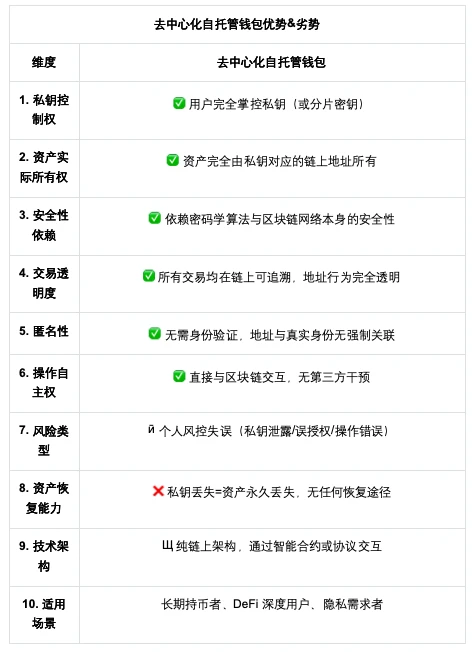The algorithm flood is endless, and security incidents are like the sword of Damocles hanging over our heads. It is never if it will happen, but when it will happen. Recently, CEX and DeFi have been frequently attacked by hackers, and asset losses, contract loopholes, and Trojan viruses have cast a shadow over the market, making the word security the focus again. There has never been absolute security in the crypto world, only evolving security strategies. When the traditional financial too big to fail rule fails in the Web3 world, the industry faces an unprecedented question: Who should we entrust our asset security to?
OKX is well aware of the security risks in the crypto industry, but we focus on solutions rather than fear - fear will not solve the problem, technological innovation is the answer. We care about the security of all crypto users. No matter where you trade, we always advocate higher security standards and allow users to truly own their own asset sovereignty through technological innovations such as self-hosted wallets and POR. This is not marketing, but the inevitable direction of industry development.

We believe that the future of Web3 is not built on trusting centralized platforms, but on code, transparency, and user sovereignty. True security does not rely on a certain platform, but is in the hands of the users themselves. Therefore, the self-hosted wallet we advocate is not only a product concept, but also a paradigm shift in the industry, which represents the return of de-trust, transparency, and personal sovereignty. OKX is committed to promoting higher security standards, providing more transparent and trustworthy solutions not only for itself, but also for the entire industry.
We hope to further strengthen OKXs commitment to crypto security by helping users understand the concept of self-custody wallets, helping users make informed decisions, and raising security awareness. OKX firmly believes that the industry must continue to evolve to protect user assets, and we support stricter security standards to ensure the long-term development of the entire industry.

There is an essential difference between platform security under the traditional paradigm and autonomous security in the Web3 era. Not your key, not your money, self-hosted wallets give users absolute control over encrypted assets and achieve decentralized management through unique private keys. Users can complete asset storage, transactions and other operations without relying on third-party institutions, and truly become managers of personal digital assets. This security mechanism based on mathematical proof completely breaks away from the traditional security framework that relies on human operation and maintenance, not only ensuring the integrity of asset ownership and privacy rights, but also avoiding the redemption risks caused by the operation crisis of centralized platforms. However, absolute control comes with full responsibility, and users need to independently bear security obligations such as the custody of mnemonics.
In terms of account generation and private key backup, unlike traditional wallets that only support deriving multiple wallets from one set of mnemonics, the OKX Web3 wallet is the only wallet that can simultaneously create multiple sets of mnemonic wallets and derive multiple accounts from one set of mnemonics, which improves the flexibility and security of users in asset management and effectively reduces the risk of private key leakage. In addition, the OKX Web3 wallet has reconstructed the backup process. Users only need to log in to their iCloud/Google accounts and set an encryption password to complete the off-chain backup. This solution breaks through the traditional hardware dependence. Even if the device is lost or the mnemonic is forgotten, assets can still be quickly restored through cloud-verified encrypted backups. Triple protection system: cloud storage + password verification + local encryption, while lowering the operating threshold, builds an insurance mechanism for encrypted assets that can resist single point failures.
At the same time, the OKX Web3 wallet provides powerful private key protection functions, such as prohibiting users from taking screenshots or recording private keys and mnemonics to prevent information leakage. To further enhance security, it also supports functions such as segmented replication of private keys to ensure that every link is protected. Through these protective measures, users private keys and mnemonics are always under strict security protection, reducing potential security risks.
According to the public audit of SlowMist Technology, all private keys and mnemonics of OKX Web3 wallet users are only stored in the users local device and will not be uploaded to any external server. In addition, the OKX Web3 wallet-related SDK is also open source, and has been widely verified and continuously reviewed by the global developer technology community, making it more open and transparent. The OKX Web3 wallet private key security module meets financial-grade security standards, ensuring that the mnemonics are stored offline throughout the process and never touch the Internet.
In response to the unlimited authorization risk that is prevalent in the DeFi ecosystem, the OKX Web3 wallet has a built-in smart contract permission management function, which supports custom authorization limits, one-click risk authorization release, constant risk monitoring, risk alerts for DApps that have not been interacted with for 30 days, and regular pop-up risk alerts. These highlight functions further eliminate the risk of asset exposure caused by excessive authorization and create a minimum authority security paradigm.
For example, many users have authorized various contracts, but contracts that have not been interacted with for a long time may become targets of hacker attacks due to lack of maintenance by the project party. The OKX Web3 wallet records the contracts that users have authorized through the on-chain retrieval function, and tracks and manages the risk-free contracts. For contracts that have not been interacted with for a long time, the system will automatically detect them and promptly remind users after discovering risks. Every 30 days, the system will remind users who have not canceled the authorization of contracts that have not been interacted with for a long time. It is recommended that users regularly manage wallet contract authorizations and cancel contracts that are no longer used in a timely manner to reduce potential risks. For another example, the OKX contract monitoring engine provides 7*24-hour security protection, scans user-authorized contracts in real time, and promptly prompts users to cancel authorization after discovering risks; if it is not canceled within 24 hours, the system will pop up a window to remind again.
In response to the risks of on-chain interactions, the OKX Web3 wallet provides a powerful risky transaction identification function, such as integrating the SkyEye KYT system to build an active defense network and scanning the risk address tag library in real time. In key links such as DApp interaction and asset transfer, malicious contracts, phishing addresses and other threats are dynamically identified through machine learning to achieve millisecond-level risk blocking before transactions. This protection system deeply integrates user autonomy with professional risk control capabilities, allowing self-hosted wallets to obtain security capabilities that exceed centralized platforms while maintaining decentralized characteristics.
The future of the industry is still unknown, but self-hosted wallets are undoubtedly one of the definite paths - becoming the Noahs Ark for the security of user assets.
Disclaimer
This content is for reference only and does not constitute and should not be considered as (i) investment advice or recommendation, (ii) an offer or solicitation to buy, sell or hold digital assets, or (iii) financial, accounting, legal or tax advice. We do not guarantee the accuracy, completeness or usefulness of such information. Digital assets (including stablecoins and NFTs) are subject to market fluctuations, involve high risks, may depreciate in value, or even become worthless. You should carefully consider whether trading or holding digital assets is suitable for you based on your financial situation and risk tolerance. Please consult your legal/tax/investment professional for your specific situation. Not all products are available in all regions. For more details, please refer to the OKX Terms of Service and Risk Disclosure Disclaimer. OKX Web3 Mobile Wallet and its derivative services are subject to separate terms of service. Please be responsible for understanding and complying with local applicable laws and regulations.










